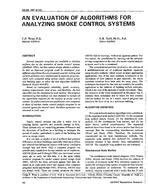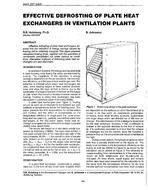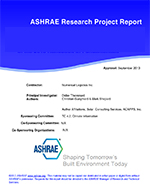Load forecasting is a long and important interest for building research and utility companies. Currently, various methods have been applied and tested for both macro (city-wide) and micro levels (individual building). Though most results are promising and reasonable in city-wide scale, individual building load prediction, particularly for residential buildings, is less well investigated and needs to be explored more so that different energy saving and control strategies can be customized and developed. In this study, a hybrid modeling approach is developed to provide better solutions for hour and day ahead load forecasting. Through this approach, the integration of data mining technologies with a lumped thermal network physics-based model is presented. The advantage of using data mining is to catch the dynamic patterns produced by non-air conditioning load such lighting and plugs, while AC consumption can be captured by physics-based models. The model is developed and tested by four low-income residential houses on the westside San Antonio. Results from three different data mining techniques, Artificial Neural Network, Gaussian Mixture Models and Support Vector Machine (SVM) are compared with the new hybrid modeling approach. The final results show that the developed new approach is slightly better than traditional methods for both hour and 24-hour ahead electrical load forecasting
Product Details
- Number of Pages:
- 8
- Units of Measure:
- Dual
- File Size:
- 1 file , 1.1 MB
- Product Code(s):
- D-AT-15-C063
- Note:
- This product is unavailable in Russia, Belarus


